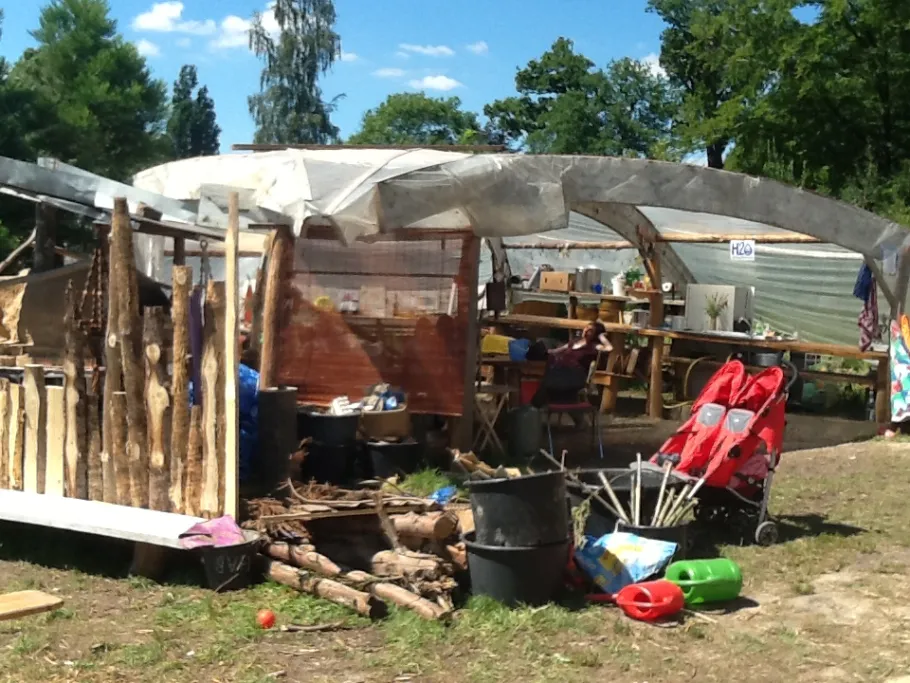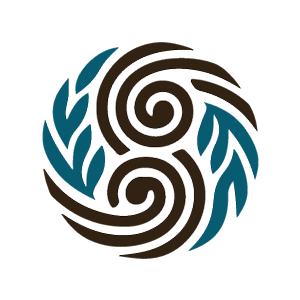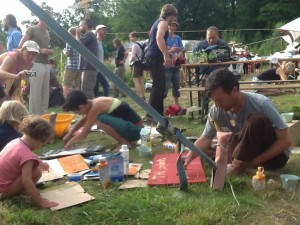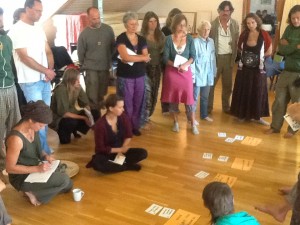
- PROJECT NAME: gASTWE:RKe e.V.
- LOCATION: Escherode, Staufenberg; Germany
- SIZE: 10 ha
- DATE DESIGNED/PLANNED: Project Start 2008
- DESIGNER: All community members
- CLIENT/DEVELOPER: Intentional community gASTWERKe e.V.
- MANAGED BY: All community members
- CONTACT AND FURTHER INFORMATION: www.gastwerke.de info [at] gastwerke [dot] de (info[at]gastwerke[dot]de)
Context - Physical/social historical In an rural context, Ecofarm
Site Analysis/Description – Place/use Eco-farm, seminar house, intentional community
Project Background and History Intentional community, started in 2008 as a commune with 21 adults and 10 Children Design, Development and Decision-Making Process Consensus
Role of Designer(s) Different designers visited the project and were asked for advice
Future Issues/Plans: We want to grow to up to 40 people. Further renovating our premises.
Does your project offer opportunities for volunteering or internships? Yes
Does the project welcome visitors or study tours? Yes
Can you offer accommodation to visitors or study tours [at the project or locally]? Yes – we welcome study tours and we offer regular workshops
Web Sites/Links : www.gastwerke.de
EPT participants feedback on the venue
Learnt:
- The design of facilities for 300 people for 1 week: compost toilet, pee-toilet, kitchen flame (hotpot) field kitchen, showers, sauna, beach-bar
- The power of the people to feel this
- Nice edge effect to the forest
- Good community
- CSA\food production
- Productive project (food) interactive community
- Huge runner bean plants in the big greenhouses
- How to take down a big top tent
- Nice campsite design
- Transformation of forestry to permaculture
- How an intentional community functions at a social level and how they use their resources
- The arboretum is classic
Could Improve:
- The camping site more flat
- Better landscape design
- Needs people and organization
- Make the arboretum more accessible
- Felt excluded from the community but that is to be expected
- Guided tours of the arboretum
- Log in to post comments


